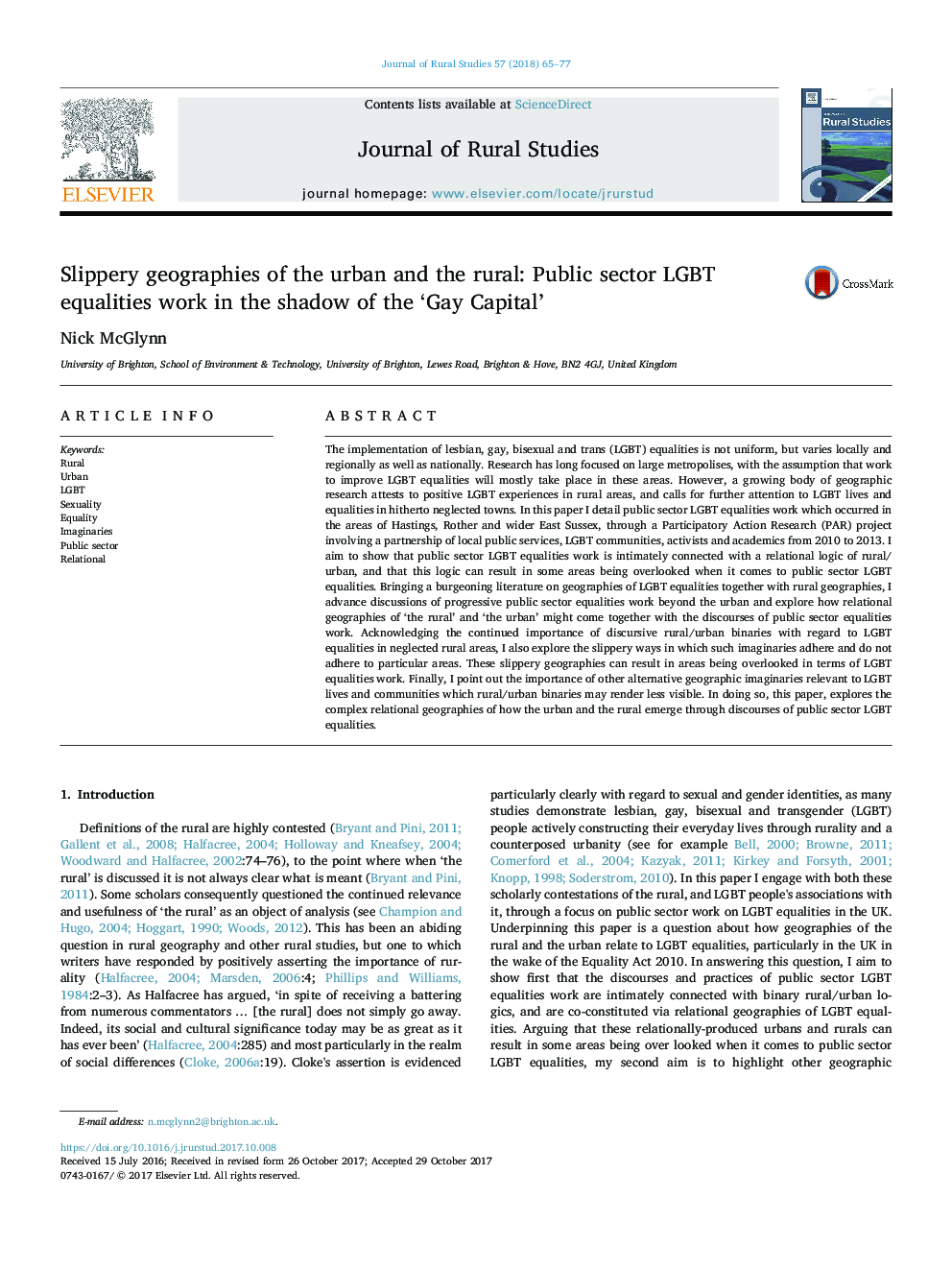| Article ID | Journal | Published Year | Pages | File Type |
|---|---|---|---|---|
| 6545355 | Journal of Rural Studies | 2018 | 13 Pages |
Abstract
The implementation of lesbian, gay, bisexual and trans (LGBT) equalities is not uniform, but varies locally and regionally as well as nationally. Research has long focused on large metropolises, with the assumption that work to improve LGBT equalities will mostly take place in these areas. However, a growing body of geographic research attests to positive LGBT experiences in rural areas, and calls for further attention to LGBT lives and equalities in hitherto neglected towns. In this paper I detail public sector LGBT equalities work which occurred in the areas of Hastings, Rother and wider East Sussex, through a Participatory Action Research (PAR) project involving a partnership of local public services, LGBT communities, activists and academics from 2010 to 2013. I aim to show that public sector LGBT equalities work is intimately connected with a relational logic of rural/urban, and that this logic can result in some areas being overlooked when it comes to public sector LGBT equalities. Bringing a burgeoning literature on geographies of LGBT equalities together with rural geographies, I advance discussions of progressive public sector equalities work beyond the urban and explore how relational geographies of 'the rural' and 'the urban' might come together with the discourses of public sector equalities work. Acknowledging the continued importance of discursive rural/urban binaries with regard to LGBT equalities in neglected rural areas, I also explore the slippery ways in which such imaginaries adhere and do not adhere to particular areas. These slippery geographies can result in areas being overlooked in terms of LGBT equalities work. Finally, I point out the importance of other alternative geographic imaginaries relevant to LGBT lives and communities which rural/urban binaries may render less visible. In doing so, this paper, explores the complex relational geographies of how the urban and the rural emerge through discourses of public sector LGBT equalities.
Related Topics
Life Sciences
Agricultural and Biological Sciences
Forestry
Authors
Nick McGlynn,
